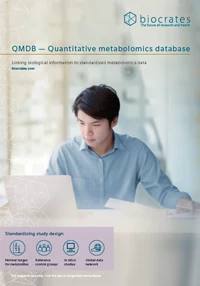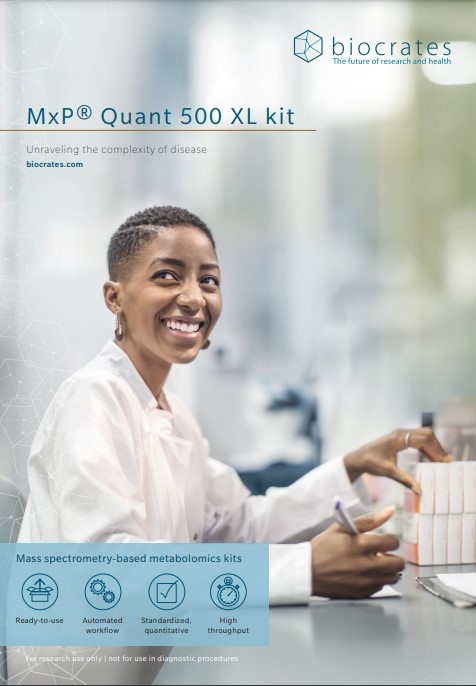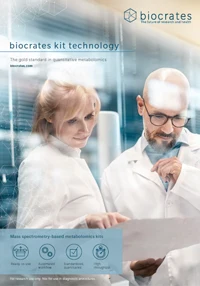Quantitative metabolomics database


QMDB – Quantitative metabolomics database
“What is the normal concentration range for this metabolite?” This question is frequently asked in many comparative metabolomics studies. Since every individual is different and the metabolome varies due to external and internal factors, “normal” is very hard to define. To address this question, biocrates created the first quantitative and standardized metabolite database.
QMDB advances metabolomics research
What is the normal concentration range for this metabolite?” This question is frequently asked in many comparative metabolomics studies. Since every individual is different and the metabolome varies due to external and internal factors, “normal” is very hard to define. To address this question, biocrates created the first quantitative and standardized metabolite database
The QMDB combines sample metadata with quantitative reference ranges based on standardized biocrates technology. It provides insights into the metabolomic differences among ethnicities, sex, and lifestyles. Whether saving valuable resources by reducing the need for additional control samples, or confirming metabolomics hypotheses, the QMDB resolves questions about normal metabolite ranges and advances metabolomics research.
Application Note
Validation and application of the Quantitative Metabolomics Database (QMDB)
How does the QMDB support experimental metabolomics?
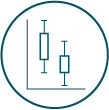
Normal ranges for metabolomics
- Access ranges for over 620 metabolites for insights into metabolomes of healthy subgroups
- Characterize own control groups by comparing them to the QMDB and identify outliers

Reference control groups
- Include reference ranges in data analysis and interpretation
- Achieve greater insight without the need for additional controls

In silico studies
- Identify novel metabolic signatures within QMDB subgroups
- Formulate and test metabolic hypotheses before starting experiments

Become part of a data network
- Compare own results with data generated in the community
- Contribute to the growing database and benefit together with others
QMDB offers flexible selection criteria
The QMDB contains metabolite concentration ranges detected in human plasma samples from healthy individuals. Included subjects were undiagnosed of any diseases and therefore are considered a healthy reference. Many filter options are available (including demographics, BMI, lifestyle choices, etc.) to precisely match your reference group of interest.
QMDB is based on MxP® Quant 500 and AbsoluteIDQ® p180 assay data.
Filter options
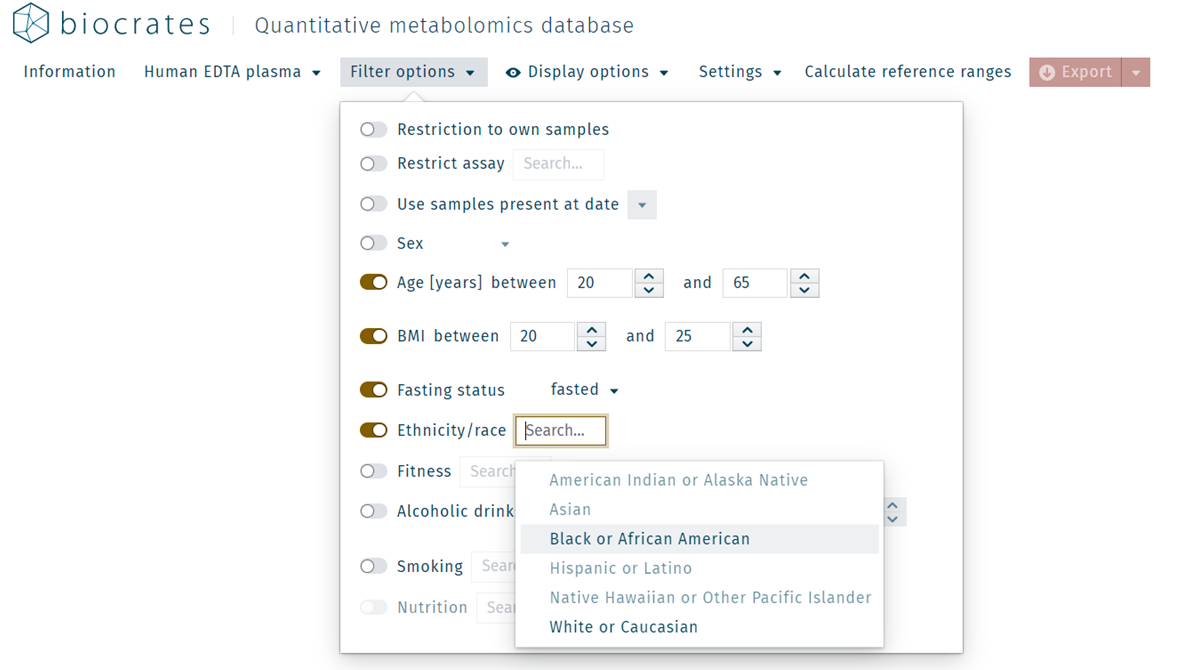
Results
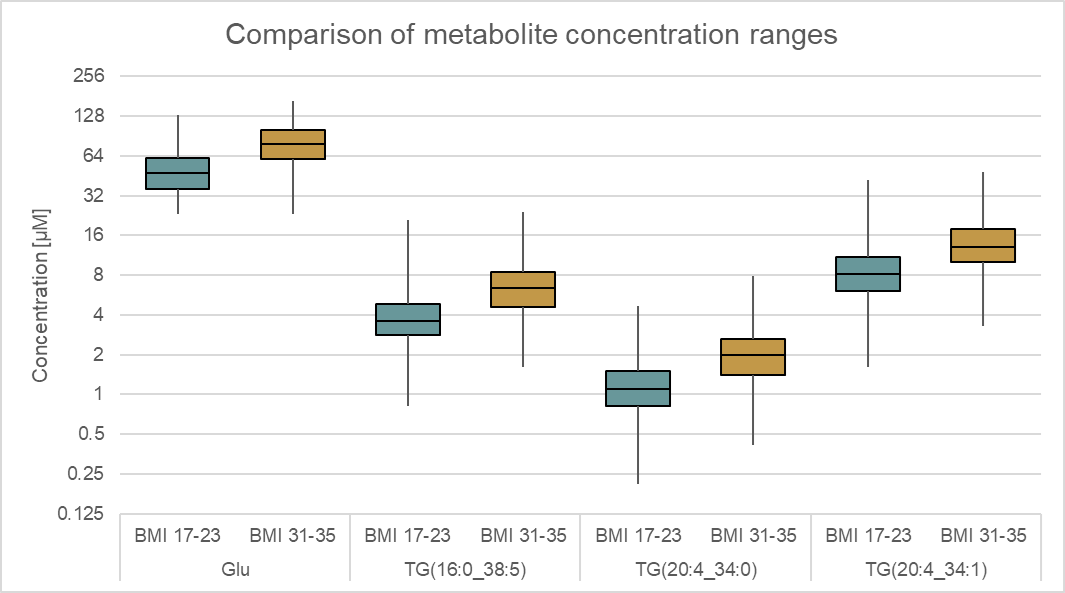

Gordian Adam, PhD
Senior Scientist | Team Lead Data Interpretation
biocrates life sciences, Innsbruck, Austria
This virtual event discusses
- Key features and benefits of using QMDB
- Demographics of the study population
- Validation procedures for the database
- Case study for the QMDB
You are currently viewing a placeholder content from YouTube. To access the actual content, click the button below. Please note that doing so will share data with third-party providers. More Information
Opinions
“One challenge we face in clinical research is the limitation of the number of precious samples and the unique nature of each sample. It can be difficult to acquire matched controls for every study. We tested the QMDB and the various filter options matched well to study groups and the results aligned with our control groups. Reassurance by the QMDB helped us to verify that our results were within normal ranges and provide further power to our study.”
Metabolomics kit products
MxP® Quant 500 XL
The largest combination of lipids and small molecules for quantitative metabolic profiling in a single kit
MxP® Quant 500
The comprehensive kit to study mechanisms of disease, nutrition, and the microbiome
AbsoluteIDQ® p400 HR
The high performance, high resolution tool for targeted metabolomics profiling
AbsoluteIDQ® p180
The gold standard in quantitative metabolomics for all fields of research
SMartIDQ alpha
Efficient workflows for busy laboratories
AbsoluteIDQ® Bile acids
The benchmark solution to assess host-microbiota interaction
Related assets
brochure
Quantitative mx database
pdf ~ 2 MB
download
brochure
WebIDQ software
pdf ~ 2 MB
download
brochure
MxP Quant 500 XL kit
pdf ~ 2 MB
download
brochure
biocrates kit technology
pdf ~ 6 MB
download
Talk to an expert

biocrates life sciences gmbh
Eduard-Bodem-Gasse 8
6020 Innsbruck | AUSTRIA
Phone +43 512 579823
Fax +43 512 579823-329
biocrates inc.
26895 Aliso Creek Rd Ste B-426
Aliso Viejo, CA 92656-5301
Phone +1 774 424 8150
Operating hours: Mo – Fr | 9 am – 7 pm (EST)

